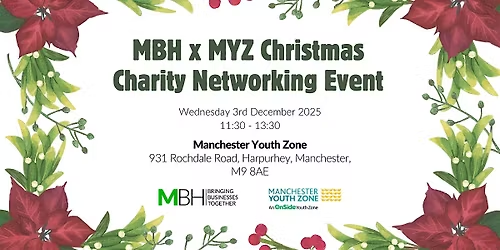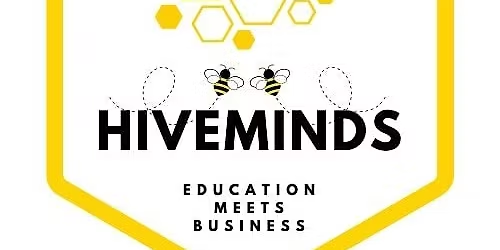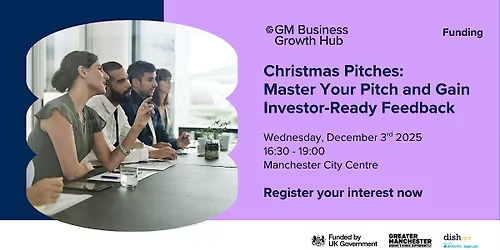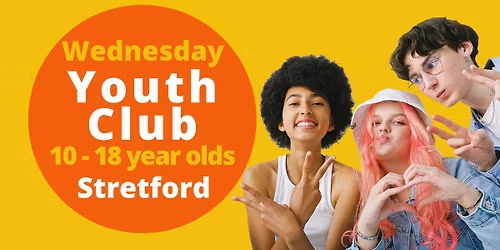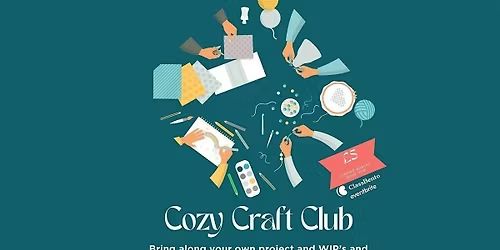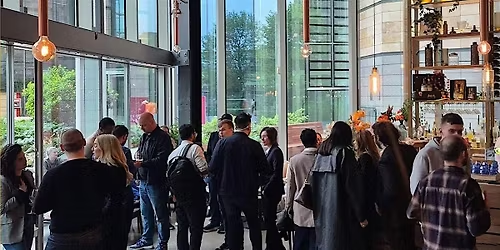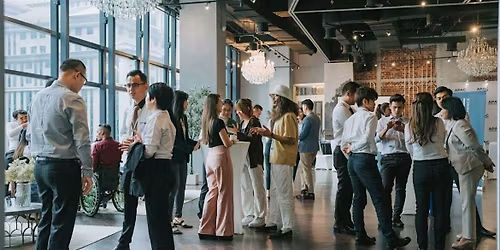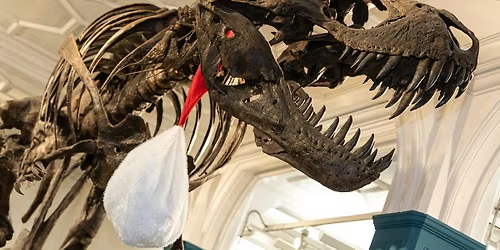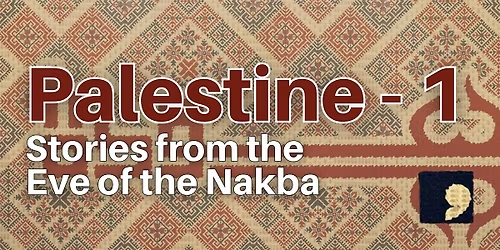
About this Event
IMPORTANT NOTE - if eventbright says we are 'sold out', please do email the organiser to secure a ticket: [email protected]. Mention you are an autistic attendee to get priority booking.
This event aims to enhance connections and facilitate conversations between the autistic and research communities: autistic people, their friends and family members, practitioners, and researchers/academics. It aims to do this by presenting talks on autism research to the public in a relaxed café atmosphere, which is open to the public in a community space. The café will be open throughout for drinks and snacks and there will be time before and after each speaker for you to take a break and buy refreshments.
Brief Agenda
5.30pm - Doors open
6.00pm - Welcome and introduction by Alexandra Sturrock (University of Manchester researcher and Autism@Manchester events coordinator)
6.15pm - Talk by Niamh Farrell (The University of Manchester)
6.45pm - Questions to Niamh
7.15pm - Talk by Busra Besdere (The University of Manchester)
7.45pm - Questions to Busra
8.00pm - Talks conclude
8.30pm - Event ends
Detailed schedule and what to expect
5.30pm: Doors open
As you enter Space 0 you will see a registration desk. You will be greeted by one of our team members wearing name badges.
- You will be asked to sign in against our register
- Staff will help you find a seat, which meets your needs.
- You will be asked if you want to use the traffic light system (see below for details).
- You will be given information about access to toilets and quiet spaces.
- The bar will be available to buy snacks and drinks. (You can make your purchases at any time during or between speakers.)
6.00pm: Welcome and introduction by Alexandra Sturrock (researcher at The University of Manchester and Events Coordinator for Autism@Manchester)
Alex will welcome you to the event and give a brief overview of the event. Alex will then introduce and welcome our speakers.
6.15pm: Talk by Niamh Farrell (Clinical Psychology Doctorate candidate, The University of Manchester)
Previous research has said that more transgender and gender diverse people show signs of autism compared to cisgender people. However, there has not been much research into the specific intersectional experiences of transgender/ gender diverse autistic individuals. This presentation will share Niamh’s current research exploring transgender autistic individuals' experiences with social communication, and how this relates to their wellbeing.
6.45pm: Questions to Niamh
Question-and-answer session with Niamh, chaired by Alexandra Sturrock. If you have a question, please raise your hand and wait to be invited to speak. We request that you do not ask questions or make comments during the talk.
7.15pm: Talk by Busra Besdere (PhD candidate, The University of Manchester)
For some autistic pupils, experiences in mainstream schools can impact their mental health. Teachers are well placed to implement strategies that promote well-being. However, little is known about their confidence, views, and support needs in this role. Busra will present preliminary findings from her PhD study, which explores primary school teachers’ views, challenges, and needs regarding supporting the mental health of autistic students in schools.
7.45pm: Questions to Busra
Question-and-answer session with Busra, chaired by Alexandra Sturrock. As before, if you have a question, please raise your hand and wait to be invited to speak. We request that you do not ask questions or make comments during the talk.
8.00pm: Talks conclude
Talks and Q&As finish 30 minutes before the venue closes, giving us time to network and finish our drinks and snacks. Feel free to approach any of the speakers or event organisers to ask further questions.
Before you leave, please complete our feedback questionnaire. We value your feedback and want to understand how our events have had an impact, so please take time to add your comments. You can hand these back to staff or leave them on your table before leaving.
8.30pm: Event ends but café still open
We hope you enjoy the event!
Practical considerations
The event is held in the Contact Theatre, Space 0 (just off the ground floor café), Oxford Road, Manchester, M15 6JA.
Information about getting to the Contact Theatre by public transport or car can be found at: https://contactmcr.com/visit/getting-here
To get to space 0, you can follow signs that will be placed around the building or you can ask at the desk in the main entrance.
Autism-positive environment & accessibility
There is information about accessible adaptations put in place by the Contact Theatre, here: https://contactmcr.com/visit/access
In addition, we want to make this event as welcoming and accessible as possible, especially to autistic people. Please could all attendees take time to familiarise themselves with the information in this section.
Social Interaction Traffic Light System: To support people who want to attend but are understandably concerned about the social demands of the event, there is a coloured badge system to indicate their desired level and mode of interaction. A coloured stick-on badge will be available for anyone who wants one – please wear your badge where it is clearly visible to others.
Please respect other people’s wishes.
- RED: No initiation. Please do not initiate any interaction with me.
- YELLOW: Open to speak to people I already know. Please do not initiate unless we know each other prior to the event.
- GREEN: Please initiate. I would like to socialise, but I have difficulty initiating. Please initiate with me.
- BLUE (or no badge): I am able to regulate my own interaction.
Quiet space: There is quiet space available throughout this event for anyone who wants to use it. The volunteers on the registration desk can show you where it is. It is okay to go and have time out in the quiet space at any time during the event.
Sensory needs: Sensory issues, and mechanisms to reduce them, are totally acceptable. Attendees are requested not to remark on tinted glasses, ear-plugs, headphones, or any other aids. Please try to reduce distracting noises.
Silent clapping: The sound of many people clapping together can be uncomfortable for some autistic people, instead we invite you to replace the traditional clap with a wave of the hands. Don’t worry if you forget (it takes a bit of practice!) Even if a few people clap, the overall noise level will have been reduced.
Expect and accept neuro differences: These might include visible stimming (i.e., calming repetitive or sensory activities), echolalia (i.e., vocalising thoughts or repeating spoken information), distractibility, sensory movements, difficulties listening, different conversation styles, and different or no eye contact.
Visit http://www.autism.manchester.ac.uk/connect/events/cafe-autistique/ for more information about previous events.
Event Venue & Nearby Stays
Contact Theatre, Oxford Road, Manchester, United Kingdom
GBP 0.00

